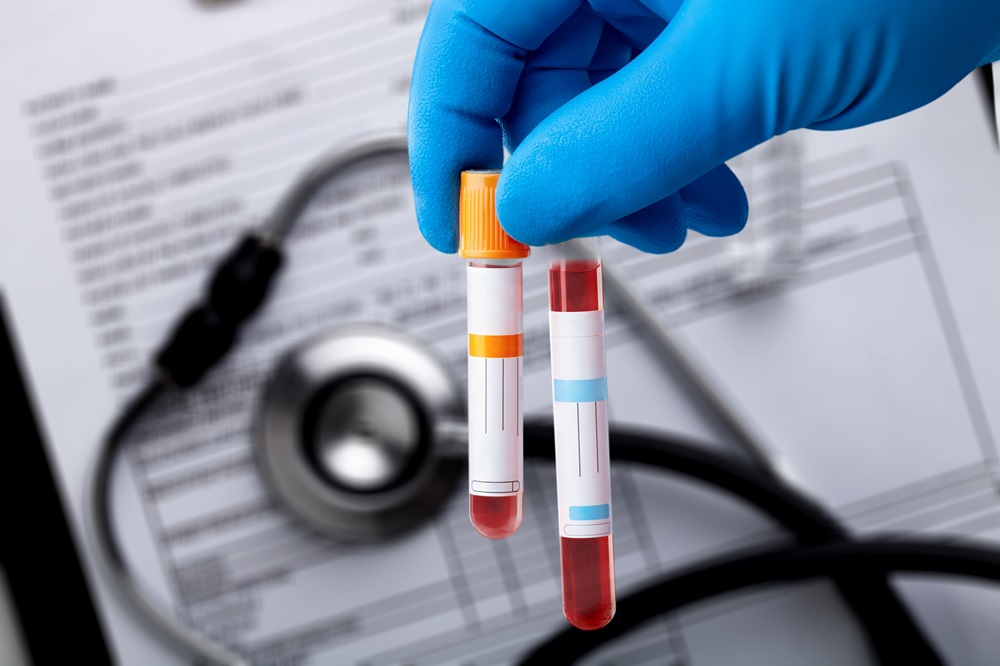Ferritin - valuable store of iron in the human body

Ferritin is an acute phase protein that is responsible for the storage of iron in the human body. It is a marker of iron deficiency, the deficiency and excess of which can cause the occurrence of undesirable symptoms and disorder of the system. What is ferritin? How can the level of the compound in the human body be examined? What can be the causes and consequences of too low, as well as too high concentration of the component in the blood?
Summary
Ferritin and iron
Iron is one of the most important elements found in the human body, which helps in the proper production of red blood cells and hemoglobin, and also supports the proper transport of oxygen in the body. What is more, the compound supports the proper functioning of the immune system and contributes to the reduction of tiredness and fatigue, as well as helps in maintaining optimal cognitive functions, contributes to the maintenance of proper energy metabolism and plays a role in the process of cell division. However, the action of the iron in the body would not be possible without ferritin, which releases the element stored in the body.
Ferritin - what is it?
Ferritin is an acute phase protein that occurs primarily in the bone marrow, as well as in the liver, spleen, kidneys and skeletal muscles. In smaller amounts, the compound can also be found in the intestinal epithelium, body fluids or in the blood.
What role does the ferritin play in the human body? The protein is responsible for the storage of iron in key organs, constituting a specific storehouse of element in the body. Thus, the substance protects the body against too high a concentration of the iron, and also allows the release of the compound during increased demand for the element. What's more, the ferritin can inform about the inflammation occurring in the body - because it is a protein of the acute phase, the level of the ferritin in the human body increases during the development of inflammation.
Recommended products
Ferritin - tests
Test of the level of the ferritin in the blood is one of the elements of diagnosis, which is used when iron deficiency is suspected, as well as when too high iron concentration in the blood is possible.
Serum ferritin testing involves taking a blood sample. Usually, the test is performed at the diagnostic point in the morning. To assess the concentration of the ferritin, a small sample of blood is enough.
Norms of ferritin in the blood
The correct values of the ferritin in the blood depend on gender, as well as on the method used by the laboratory. However, the normal concentration of the ferritin should be 10-200 microgramme per litre among women and 15-400 microgramme per litre among men.
Too low ferritin levels may indicate deficiency and anaemia, while high ferritin may suggest the presence of inflammation in the body.
Low ferritin - symptoms
Ferritin deficiency can contribute to symptoms such as general weakness, fatigue, problems with concentration or sleep disorders. Moreover, the low protein levels can cause headaches and dizziness, pale skin, brittle hair and nails, and reduced immunity and increased susceptibility to infections. How to prevent the occurrence of undesirable ailments? How to increase the level of the ferritin in the body?

How to increase ferritin levels?
If your blood ferritin levels are too low, consult your doctor to discuss further treatment. Sometimes may be helpful dietary supplements containing iron or ingredients, such as vitamin C, which may have a positive effect on the absorption and concentration of the element in the body.
A good solution to increase the concentration of the ferritin in the human body may also be a modification of the daily menu. It is worth including in the diet products of animal origin, such as meat or dairy products, which contain significant amounts of heme iron. Eggs, some fish and seafood are also good sources of the iron. You should not forget about whole grains products, vegetables such as spinach, beetroot or carrots, as well as fruits, including raspberries and berries - plant products, although they contain non-heme iron, which is distinguished by poorer availability and absorbability, they are a source of valuable vitamins and minerals that can positively affect the absorption of the iron.
Elevated ferritin - what level of ferritin is dangerous?
Sometimes the results of blood tests may indicate an increased level of the ferritin in the body, which may pose a threat to the proper functioning of the body. Dangerous level of the protein among women is above 200 microgramme per litre, while among men - above 400 microgramme per litre.
The high protein concentration in the body can be the result of inflammation, and can also be caused by intense physical work and demanding training. Excess ferritin can also be observed as a result of iron overload, which may be the result of improper use of dietary supplements containing the compound, and may also be associated with the occurrence of a genetically determined disease, which is hemochromatosis. The high levels of ferritin can also occur among people struggling with chronic kidney disease or liver diseases.
High ferritin - symptoms
High levels of the ferritin in the body may contribute to the occurrence of non-specific symptoms, such as:
- feeling tired and weak,
- joint pain,
- constipation,
- bloating,
- weight loss,
- cardiac disorders,
- bad mood.
To reduce the level of the ferritin in the body, it is worth consulting a doctor. One solution may be to modify the daily menu and limit the consumption of products considered to be rich sources of the iron.
Ferritin - supplementation
Low levels of the ferritin may be an indication for the use of preparations containing the compound or supplements rich in the iron. However, it is not always necessary to use dietary supplements - in the case of small deficiencies, it may be sufficient to modify the menu and increase the consumption of products considered to be sources of the iron.
Dietary supplements containing the ferritin or the iron may be helpful among people who have difficulty absorbing iron, follow plant-based diets or suffer from chronic diseases. Before starting to use the preparations available on the market, it is worth consulting a doctor and perform the necessary tests so as not to lead to excess ferritin in the body.

